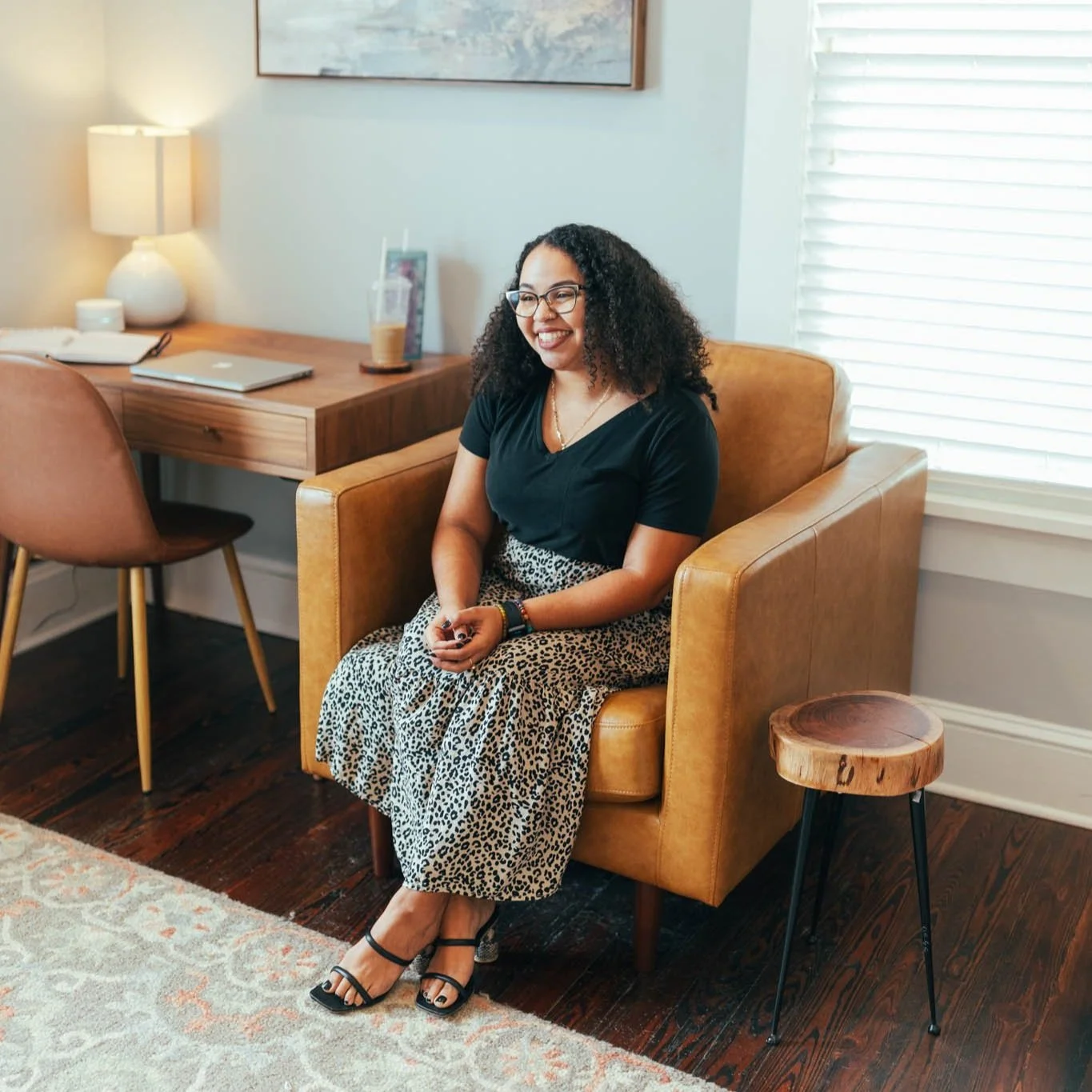Why Counseling Deserves a Place in Your Wellness Routine
“I don’t have time for counseling… plus, I don’t have bad enough problems anyways.”
As a clinical mental health counselor, this is one of the most common things I hear. But here’s the truth, you don’t need to be in crisis to benefit from therapy. Some of the most transformative work happens when you give yourself permission to explore, reflect, and grow — even when life feels “fine.”
Counseling is not just a last resort, it’s a proactive part of your overall wellness routine, just like movement, nourishing food, rest, and community. Let’s talk about why mental health counseling deserves a spot in your wellness routine — not just when things are falling apart, but as part of how you care for your whole self.
1. Understand Patterns That No Longer Serve You
Many of us go through life on autopilot, reacting to situations without fully understanding why. Counseling helps you slow down and tune into what’s really happening beneath the surface. Maybe you're caught in patterns of anxiety, people-pleasing, avoidance, or perfectionism. Maybe you feel disconnected from your needs or overwhelmed with intrusive thoughts.
In therapy, we get curious — not judgmental — about where these patterns came from and how they’re affecting your life now. With awareness of the core beliefs comes a choice. When you begin to understand your inner self, you can start showing up more fully in your relationships, work, and daily life but most importantly with yourself.
2. Build Coping Skills for Overwhelming Feelings
You don’t have to wait until you hit a breaking point to learn how to manage stress, anxiety, or emotional overwhelm. Lots of people grow-up in environments where healthy coping skills were not demonstrated. In therapy, you’ll develop healthier tools and strategies that help you move through difficult feelings with more confidence and self-compassion.
Think of it like mental and emotional strength training. The skills you build like grounding, boundary-setting, emotional regulation, or self-soothing can support you not just in tough moments, but in staying well over time. Therapy is a space where you can experiment with these tools, adjust what’s not working, and find what works best for you.
3. Process Your Thoughts in a Supportive Space
Therapy isn’t just about getting straight to a solution. It’s a space where your thoughts and feelings can be heard, held, and worked through without judgment. In a world that often pressures us to “fix it fast,” counseling offers something different: time, space, and support to understand what you’re going through without putting a quick bandaid over things.
This process of being witnessed and affirmed can be deeply healing especially if you’ve felt dismissed, silenced, or misunderstood in the past. Mental health counseling helps you make meaning of your experiences, clarify what matters most, and feel more grounded in your truth.
4. Shift Self-Doubt Into Self-Compassion & Growth
So many people come to therapy feeling like they’re “not enough” or that something is “wrong” with them. The truth? Self-doubt is often a response to painful past experiences, unrealistic expectations, or internalized messages from the world around us.
In counseling, we work to gently challenge those beliefs and shift toward self-compassion. This doesn’t mean ignoring your pain or becoming self-centered, it means learning to treat yourself with the same kindness, patience, and care you would offer a loved one. That shift can create the foundation for real growth, healing, and meaningful change in your life and relationships.
5. Develop Healthy Communication Skills
Clear, respectful communication is one of the most powerful tools we have in building stronger relationships — and it’s something many of us never formally learned. Therapy offers a space to practice setting boundaries, expressing needs, and navigating conflict.
Whether you’re working on romantic relationships, family dynamics, or professional interactions, improving your communication skills can help you feel more understood and less reactive. Communication skills aren’t just about talking, they’re about creating more meaningful, authentic connections. There’s no community with communication.
6. Gain Guidance Through Tough Life Transitions
Even positive life changes can bring up anxiety, grief, and uncertainty. Whether you’re starting a new job, ending a relationship, moving, graduating, or entering a new life phase — transitions can shake up your sense of self and stability.
Counseling provides an anchor during these shifts. You’ll have a grounded space to explore what’s changing, process what you're feeling, and build confidence in your ability to move forward as you navigate your next chapter.
What You Can Expect from Working with Me
If you’re dealing with depression, anxiety, burnout, panic attacks, perfectionism, or people-pleasing — you’re not alone. I work with adolescents and adults navigating these challenges in a way that is compassionate, collaborative, and tailored to your care needs.
At Brighter Days Wellness, my approach is anti-oppressive, trauma-informed, and person-centered. I strive to create a space where you feel safe, seen, and supported in all your identities and lived experiences. Together, we’ll explore what’s keeping you stuck and build sustainable coping strategies for long-term growth.
You don’t need to wait until you’re falling apart to reach out for support. Counseling can be a consistent part of your wellness routine. If you’ve been considering counseling, I invite you to take the next step. You deserve care that honors your full humanity.
➡️ Ready to get started? Schedule a free 15-minute consultation call or book an appointment here.



